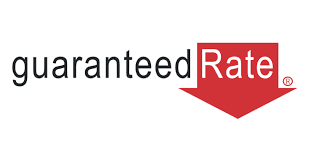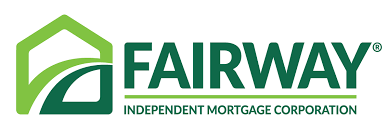Lender LendingTree rating and “best of” category Lender review


Refinance loansRead our review


VA loansRead our review


Jumbo loansRead our review


Online mortgage experienceRead our review


FHA loansRead our review


Home equity loansRead our review


Mortgage loan varietyRead our review
![]() Learn more about how we chose our list of the best mortgage lenders.
Learn more about how we chose our list of the best mortgage lenders.
There are a variety of rules and regulations that regulate the real estate market in Indiana. We’ve laid out some of the most prominent ones below:
Indiana law requires that sellers fill out a Seller’s Residential Real Estate Sales Disclosure form when they put their homes on the market. The form inquires about features, such as the home’s appliances, heating system, water and sewer systems and roof.
It is also important to note that Indiana is a judicial foreclosure state, which means that the lender must go through the court system in order to foreclose on the home. Deficiency judgements, which allow the lender to sue after the foreclosure to recoup any losses, are also permitted. However, the lender sometimes will waive this right in exchange for the homeowner waiving their right to a presale waiting period.
Where divorce is concerned, Indiana is an equitable distribution state, meaning that marital assets must be divided fairly. However, “fairly” doesn’t necessarily mean a 50/50 split like you would see in a community property state. In a divorce, the division of property will be defined by the extent to which the property was acquired by each spouse and the economic circumstances of each spouse.
Finally, Indiana is an escrow state, meaning that state law does not require buyers to hire an attorney to close on a home. Instead, buyers are allowed to use a representative from an escrow or title company.
Unlike many other states, Indiana does not charge real estate transfer taxes. In 2011, legislation was passed to prohibit state and local governments from imposing such a tax.
However, once you own your home, property taxes are allowed to be charged. On average, counties in Indiana charge 0.85% of the property’s value in taxes per year, according to Tax-Rates.org. This comes out to $1,015 in taxes on a home worth the median value of $123,100. At that rate, Indiana has one of the lowest median tax rates in the country.
If paying those property taxes is an issue, there are property tax exemptions available for senior citizens, veterans and people with disabilities. You can check your eligibility for these exemptions at the Indiana Department of Local Government Finance website.
Throughout Indiana, the conforming loan limit for single-unit properties is $484,350. This is the limit in place for most areas across the country.
The conforming loan limit represents the maximum loan amount that government-sponsored enterprises Fannie Mae and Freddie Mac will purchase. Anything above that amount is considered a jumbo loan. While jumbo loans are available, they’re considered by lenders to be a bigger risk than a conforming loan. As such, jumbo loans often come with higher interest rates and stricter credit score requirements.

Fortunately, prospective buyers interested in buying a home in Indiana have access to several homebuying programs. Here are a few that we’ve laid out for you to consider.
A program offered by the Indiana Housing and Community Development Authority, Helping to Own (H2O) offers first-time homebuyers the opportunity to get up to 3.5% of their home’s purchase price in down payment assistance when used in conjunction with an FHA 30-year, fixed-rate loan.
Who qualifies
To qualify, buyers must meet the following requirements:
Another program offered by the Indiana Housing and Community Development Authority, Next Home Advantage is open to all buyers with low to moderate incomes. Borrowers do not have to be first-time homebuyers. It is a 30-year, fixed-rate mortgage.
The program offers down payment assistance in the form of a grant that is equal to 3% of the home’s purchase price. The grant is forgiven as long as the homeowner lives in the home for at least two years.
Who qualifies
To qualify, buyers must meet the following requirements:
Honor Our Vets is an Indiana Housing and Community Development Authority program designed to help eligible veterans and surviving spouses with relocation costs by offering up to $5,000 in assistance. These funds can be used to cover a down payment, closing costs or other expenses associated with moving.
This program also offers a 30-year mortgage using VA financing, which allows buyers to finance up to 100% of the home’s purchase cost. First-time buyers may combine it with a mortgage credit certificate.
Who qualifies
To qualify, buyers must meet the following requirements: